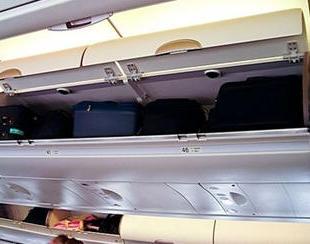|
|||||||||||||||||
|
|
|
|||
|
Court Orders Delta
Airlines To Pay Legal Fees For Withholding Evidence By Mike Mitchell |
||||
 |
February 13, 2012 - U.S. District Judge Timothy Batten
has ordered Delta Air Lines to pay plaintiffs’ legal
fees in an evidence gathering proceedings after it was
discovered Delta Air Lines withheld 60,000 documents in
a lawsuit (Delta/AirTran Baggage Fee Antitrust
Litigation, 1:09-md-02089, U.S. District Court, Northern
District of Georgia) which alleges Delta Air Lines
conspire with AirTran to fix baggage fees.
Judge Batten wrote, Because there “is no smoking gun”
implicating Delta in a conspiracy with AirTran Holdings
Inc. to charge $15 to check the first bag as alleged in
the 2008 suit, paying legal fees and costs is
sufficient. The withheld documents turned up in a
related civil investigation by the U.S. Justice
Department’s antitrust division. A brief history of this case as alleged by plaintiffs and defendants, Delta and AirTran compete heavily on routes to and from Atlanta because Hartsfield-Jackson Atlanta International Airport ("Hartsfield-Jackson") serves as the principal hub for both airlines. |
|||
|
Together
Delta and AirTran account for approximately ninety-two percent
of all of the airline traffic at Hartsfield-Jackson. AirTran
describes Atlanta as the "core of [its] business." Delta
describes Atlanta as its "core strength market." AirTran
positions itself as a discount airline that provides low fares
compared to its competitors. Its main rival is Delta, which
competes with
Delta has
consistently matched AirTran's low prices, including on routes
to and from Hartsfield-Jackson. Historically, the two airlines
have competed for market share in what has been described by
observers as "one of the fiercest rivalries in the U.S. airline
industry." According to Plaintiffs, prior to the unlawful
collusion alleged in this action, consumers have benefited from
this competition in the form of additional capacity on routes,
lower prices, and fewer ancillary fees such as fees for checked
bags
Plaintiffs
currently consist of the following twelve purchasers of Delta
and AirTran services who paid a first-bag fee on flights: Brent
Avery; David Terry; Michael Edelson; Martin Siegel; Jacaranda,
Inc.; Patricia Freedman; Stephen Powell; Henryk J. Jachimowicz;
Laura Greenberg Gale; Carla Dahl; and Victoria Mertes.
Plaintiffs
allege that the longstanding intense competition between Delta
and AirTran prevented either airline from charging a first-bag
fee unilaterally. The first half of 2008, proved to be difficult
for the airline industry because the price of oil temporarily
spiked to high levels.
|
||||
|
In 2008, a barrel
of oil cost $90 .82 in January, peaked at $132 .55 in July, and ended at
$41.53 in December. The temporary increase in oil prices impacted
airline profits, including AirTran's and Delta's.
Plaintiffs allege
that instead of resolving this dilemma in a lawful and competitive
manner, AirTran and Delta colluded, ultimately causing consumers to
suffer harm in the form of higher prices. Specifically, Plaintiffs
allege that AirTran invited Delta to collude (through a series of
earnings calls with industry analysts and peeches/break-out sessions at
industry conferences) so that both airlines could increase prices to
consumers without losing any market share. Plaintiffs allege that Delta
accepted this invitation and that the two airlines engaged in
anticompetitive conduct by increasing prices through capacity reductions
and imposing a first-bag fee.
Plaintiffs allege
that AirTran first invited Delta to collude in its April 22, 2008 first
quarter earnings call, which Delta monitored. During AirTran's first
quarter earnings call was originally scheduled to occur on April 24,
2008, one day after Delta's first quarter earnings call. However,
AirTran rescheduled the call to occur at 9 a.m. on April 22, the day
before Delta's earnings call.
Seizing upon this
fact, Plaintiffs argue that AirTran intentionally rescheduled the call
so that it could initiate collusive communications with Delta and allow
Delta an opportunity to respond at its own earnings call. AirTran
counters that the rescheduling of the call had nothing to do with Delta.
AirTran states
that it moved the call so that it could respond to investor inquiries
regarding a $150 million securities filing that was set to occur at 5:05
a.m. on April 22. Ordinarily, such conflicting interpretations regarding
these events would favor Plaintiffs because on a motion to dismiss, the
Court must accept the facts as alleged by Plaintiffs.
However,
subsequent correspondence between the parties sheds more light on this
issue. Specifically, Plaintiffs had originally argued in their
opposition brief to the motions to dismiss that the securities filing
took place at 5:05 p.m. on April 22, which, if true, would have rendered
implausible AirTran's argument that it had rescheduled the call to
answer inquiries regarding the securities filing (if the filing did not
take place until 5:05 p.m., then AirTran would not been able to utilize
a 9 a.m. earnings call to answer inquiries regarding the filing). Since the filing of Plaintiffs' opposition brief, Plaintiffs now concede that they misread the time stamp on the securities press release form and that the securities filing did in fact occur at 5:05 a.m. On April 22, thereby supporting AirTran's explanation. |
|
|
| blog comments powered by Disqus |
 |
| ©AvStop
Online Magazine
Contact
Us
Return To News
|
|

